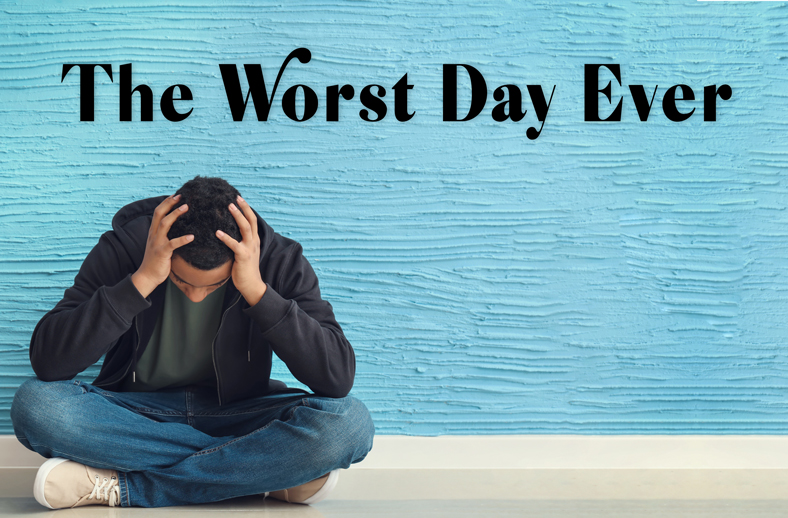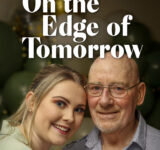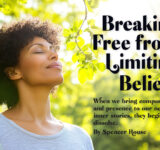When an event dramatically upsets your equilibrium, it’s important to recognize that it can become YOUR personal low point in life.
By Jo Mooy
While scrolling through a cooking group on social media, a post stopped me. A young woman named Jennifer was baking a casserole when the glass dish in the oven broke, sending shards throughout the food she was preparing. Bemoaning the event, she reported that it was “the worst day ever.” Was a shattered Pyrex dish filled with food really the worst day ever in Jennifer’s life? What qualifies as “the worst day ever” in someone’s mind?
The most famous opening line in a book was that of Charles Dickens’ Tale of Two Cities. He began the book with, “It was the best of times, it was the worst of times.” Then he goes on to write: “It was a season of light and a season of darkness. It was a spring of hope and a winter of despair.” The book was about the French Revolution. Without trial, 30,000 people were executed or died in prison during the Revolution’s Reign of Terror. In my mind, that tops the list of the “worst day ever” over a lost casserole.
A woman named Laura related her visit to Paris on Instagram. Laura and her daughter Emma were going down the long stairs in the Metro. Emma, like many younger people, was not paying attention to her surroundings because she was laser focused on whatever story was happening on her iPhone. A couple of shady men going up the stairs saw their golden opportunity. One of them grabbed the expensive phone and the other snatched Emma’s purse before both of them disappeared in the crowd. With iPhone and passports gone, the mother, in a too-broad generalization, complained to the world that Paris was full of pickpockets and the police were no help in resolving their problem, and that it was their “worst day ever.”
Other “worst days ever” come to mind. The year is 536 AD. Imagine waking up one morning and seeing what was described as a “weird fog” outside. The sun was barely visible, and the temperature had dropped significantly from the previous day. Darkness fell over the world. Continuing for five years, the temperatures ranged between 34 degrees and -36 degrees Fahrenheit, causing a major natural disaster where crops failed and drought was everywhere on earth. The lack of growing seasons resulted in a full-scale famine where millions died. The economy of Europe collapsed, plague ravaged the land, as the disaster continued to 640 AD. Not until the 1990s did scientists discover that volcanoes had erupted all over the world cooling the planet, plunging crops into darkness, and causing a disaster that wiped out 55 percent of the human population and most species. Roman chronicles referred to 536 as “the worst year to be alive.”
The French Revolution’s Reign of Terror and the year 536’s incredible geological collapse would surely qualify as some of the worst days ever in world history. But it’s not fair to only use the size of the impact as a qualifier. Nor should we use numbers of deaths to be the qualifier. Those two events had massive impacts. Nor should we diminish Jennifer’s casserole explosion, which turned out to be her worst day ever. If you’ve been in Laura and Emma’s shoes where you lost your passport and all your money and had to figure out how to navigate home, it too might qualify as the worst day ever.
So, who judges what is or isn’t the worst day ever? It depends. About 10 years ago I was introduced to S.N. Goenka, who was the world-renowned founder and teacher of the Vipassana Research Institute in India. I attended his 10-day silent Vipassana retreat. Every evening, he gave a teaching lecture. One lecture has stayed with me for the 10 years since first hearing it.
I called it The Rolex Lecture, and it goes to the heart of this article. Sri Goenka told the story of the man who owned a gold Rolex. He was very proud of the Rolex, showing it off to everyone he met. It was his prized possession. Then one day the man came to the temple bellowing, “My Rolex, my Rolex, I lost my Rolex. It’s gone. It was my most precious possession. What am I going to do? How could this terrible thing happen to me? This is the worst day of my life.”
Sri Goenka continued by saying that most people heard the man’s story. They were sorry for him. But no one was terribly invested in the loss of his Rolex. It was his Rolex, and it happened to him, not to them. So, they really didn’t care. He paused a long time before continuing. He said, “Now, if it’s my Rolex (emphasizing MY Rolex) that I lost, well then that would be the worst day ever, wouldn’t it?
It’s not the Rolex, or the casserole, or global crop failure or plague. When something happens to someone else, we listen, detach and step back. We even make a judgment about the event as to whether or not it’s really the worst day ever. But in the end, it’s THEIR worst day ever not yours. However, here the story turns. If an event dramatically upsets your equilibrium, then it becomes very personal. When that happens to YOU, it definitely becomes YOUR worst day ever.
Jo Mooy has studied with many spiritual traditions over the past 40 years. The wide diversity of this training allows her to develop spiritual seminars and retreats that explore inspirational concepts, give purpose and guidance to students, and present esoteric teachings in an understandable manner. Along with Patricia Cockerill, she has guided the Women’s Meditation Circle since January 2006 where it has been honored for five years in a row as the “Favorite Meditation” group in Sarasota, FL, by Natural Awakenings Magazine. Teaching and using Sound as a retreat healing practice, Jo was certified as a Sound Healer through Jonathan Goldman’s Sound Healing Association. She writes and publishes a monthly internationally distributed e-newsletter called Spiritual Connections and is a staff writer for Spirit of Maat magazine in Sedona. For more information go to http://www.starsoundings.com or email jomooy@gmail.com.





